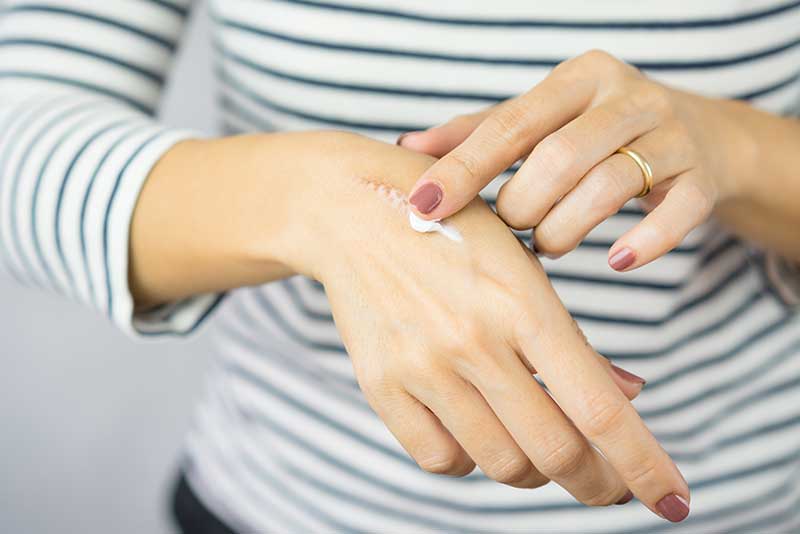Imagine waking up every day feeling tired, thirsty, and hungry no matter how much you eat or drink. These could be signs of something more serious—diabetes. Diabetes is a common health problem that can affect anyone, and it happens when your body can’t use sugar properly. But don’t worry! If you know what to look for, you can catch it early and take steps to stay healthy. Keep reading to learn about the early signs of diabetes that you shouldn’t ignore. Knowing these could make all the difference in living a healthier, happier life.
Some early signs and symptoms of diabetes
1. Increased Hunger

When your blood glucose level is high, your body looks for a way to get rid of it. Since your body becomes deprived of glucose due to the removal of so much glucose, the energy level of the body decreases. This in turn increases your hunger, so even if the person is eating well, it does not meet the energy requirement of the body. That’s why the person feels hungry even after having food.
2. Frequent urination and increased thirst
If your blood sugar is constantly on a higher level then your kidneys have to overwork to expel that excess glucose from the body, which leads to frequent urination. This is one of the earliest signs of diabetes. You might get the urge to pee so bad that it will wake you from bed to visit the loo. Since your kidneys are overworking to expel glucose from your body through frequent urination. This leads to an increase in your thirst.
3. Tingling sensation

Constant high sugar can damage your nerves which leads to a tingling sensation and numbness in your toes and tip of the fingers. If this numbness persists, then it is better to go to your doctor and get your blood sugar checked.
4. Fatigue and dizziness

If your blood sugar level is constantly high, your body works hard to expel excess glucose from the bloodstream. This process can take a toll on your body and it also changes the way your body uses glucose for energy. This leads to constant fatigue in the patient, and it also affects the ability to concentrate. It can also cause dizziness.
5. Vision impairment

When your blood sugar is constantly high then it can damage the blood vessels in your eyes, which further leads to a swollen lens that can cause blurry vision. It is known as retinopathy, and if it is left untreated it can lead to permanent blindness.
6. Skin discoloration
This often shows the signs of insulin resistance in your body. It is marked by dark patches on your skin, especially in the folds of your skin such as the underarms, groin, and back of your neck.
7. Sudden weight loss

Since your body is not able to use the blood glucose level effectively for energy, which is your greatest reserve of energy. It starts burning muscles and fat for energy which leads to weight loss even though your eating patterns are still the same. It generally happens in the case of Type 1 diabetes.
8. Slow healing of wounds

Another common symptom of diabetes is the slow healing of wounds. Over time, constant high blood sugar damages your blood vessels that weaken your blood circulation levels. Poor blood circulation makes it very hard for blood to reach the affected area and due to this your injury takes a long time to heal. It makes them prone to infection. In severe injury, it can lead to amputation.
9. Yeast infection

The presence of excess sugar in the bloodstream and urine provides ample food for yeast and prepares an ideal environment for yeast to thrive. These yeast infections generally occur in warm and moist areas such as around your genitals, armpits, and under your breast. The person will feel itchiness, redness, and a burning sensation in the affected area.
Risk factors for diabetes
- If you are overweight or obese.
- If you are leading a sedentary lifestyle along with poor dietary choices, then you are at a higher risk of diabetes.
- If someone in your family is suffering from diabetes, such as your uncle, mother, or father, then you are also at risk of developing diabetes.
- Suffering from Polycystic ovarian syndrome (PCOS) increases your risk of diabetes as it shows insulin resistance, which is a precursor of Type 2 diabetes.
- If you have suffered from gestational diabetes during your pregnancy, which is a common symptom of diabetes in women. It occurs due to hormonal imbalance. Generally, it goes away after delivery but it can lead to Type 2 diabetes.
- You are at risk of developing diabetes if you are over the age of 35 years due to slow metabolism, although it can appear at any age.
Diabetic coma
This is a very severe complication of diabetes that happens when your blood sugar becomes very high and your body becomes severely dehydrated. This leads to diabetic-induced coma and in severe cases, it can lead to death also. It is more prominent in Type 2 diabetes.
Benefits of early diagnosis
Prevention is better than cure. Recognizing these early symptoms can allow you to get your diagnosis and treatment done. If you are in a Prediabetic state, then you can reverse your condition by incorporating healthy lifestyle changes. Although if you are already suffering from diabetes then making healthy lifestyle changes along with medication can reduce the risk of various complications related to diabetes.
Takeaway
Diabetes is a very common medical ailment that is recognized by high blood glucose levels. The early symptoms are listed above, so if you have similar symptoms, it is best to get your blood sugar checked to avoid any further complications.
Frequently Asked Questions (FAQ)
References
https://journals.lww.com/ijmr/fulltext/2014/40050/Know_the_signs_and_symptoms_of_diabetes.1.aspx
https://link.springer.com/article/10.1007/s00125-004-1625-y

Priyanka Khurana Goyal is a prominent Indian figure renowned for her diverse accomplishments and contributions across various fields.. Read more



